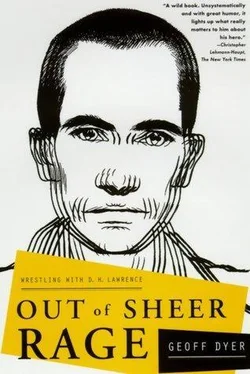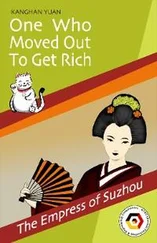Again one must not exaggerate. Lawrence would have been horrified by the thought of ‘mellowing’; rather he was in the condition evoked by Van Gogh in a letter to his brother, Theo: ‘One no longer rebels against things, but neither is one resigned — one is ill and does not get better.’ Perhaps Lawrence was close to the most difficult, elusively rewarding freedom of all: freedom from himself. He was still irritable and easily annoyed but there was an underlying calm and, as ever, Lawrence himself was aware of this. (Has anyone ever been more sensitive to the ebb and flow of their own feelings? Of course this is what he is famous for doing, through the characters in his novels, but I prefer the epistolary monologue to the drama of fiction.) ‘For my part, though, I am perhaps more irascible being more easily irritable, not being well, still, I think I am more inwardly tolerant and companionable. .’
Felicitous, that ‘still’. Lawrence’s calm was all the lovelier for the rage that had preceded it and it was expressed, again and again, in terms of stillness. At the beginning of his wandering he had remarked how he hated shifting; now, when shifting had become second nature, stillness became a measure of happiness. From Munich in 1927 he writes that it is ‘very nice to be quite still: and this is one of the stillest places I know. The trees seem to make a silence. I really like it very much here, and I am honestly much better.’ After all the gales of anger that had blown between them, he wrote to Ottoline Morrell, hoping that they might come to enjoy ‘that stillness in friendship which is the best’.
‘A fine wind is blowing the new direction of Time.’ That was one of the first lines of Lawrence’s that I read; the image that accompanied it, of Lawrence standing with the wind pouring through the sky, was one of the first images of him that I saw. At times this wind by which Lawrence lived threatened to tear him apart and this is why it is lovely to see him in his last years, gazing at the world as if it were a Matisse or Dufy, ‘sitting in the sun and seeing the easy, drifting life of the place. That’s how I am happiest nowadays — just sitting still, quite alone, with a little friendly life to watch.’
In the letters from the last years of Lawrence’s life the realised ideal of stillness crops up again and again. It is like the ripe stillness preceding the autumn announced in his great poem ‘The Ship of Death’. In the letters we have heard the pulse of that poem preparing itself for many years. Now there is a perceptible hush as the poem and the death which it anticipates begin, definitively, to grow in him. It is the combination of an achieved, contented mood and the increasing awareness of his own death that makes many of his letters from this period so heart-breaking: ‘It is very lovely, the wind, the clouds, the running sea that bursts up like blossom on the island opposite. If only I was well, and had my strength back! But I am so weak. And something inside me weeps black tears. I wish it would go away.’
Let’s return to that remark of Lawrence’s about not wanting to let anyone filch even his influenza. .
That Nietzsche had an influence on Lawrence is undoubted. Relying on an appalling travesty of Nietzsche’s ideas, John Carey holds the philosopher responsible for most of the novelist’s sillier ideas and his inclination towards a proto-fascist cult of the leader. The idea of the will to power certainly made an impact on Lawrence, and his reading of Nietzsche contributed, no doubt, to his distaste for democracy and his belief in a natural aristocracy or whatever nonsense it was he declared himself in favour of in the course of falling out with the aristocratic democrat Bertrand Russell. This, if you like, is first-order influence and I’m not concerned with it here.
But it is that remark about no one trying to filch from him his influenza that shows how at the level of his own life — and for Lawrence the ‘struggle inside oneself’ was ‘the only history’ that mattered — he had taken Nietzsche to heart. Not the ranting, posturing Nietzsche of Zarathustra , but, crucially, the Nietzsche of The Gay Science (which, rendered into French of a sort, became Lawrence’s preferred title — ‘Le Gai Savaire’ — for his Study of Thomas Hardy ).
In Camus too there is a direct philosophical debt to Nietzsche but, even more strikingly than in the case of Lawrence, it is an affinity of the soul that is all-important. Unlike Lawrence, Camus never flirted with the political extrapolations of Nietzsche’s thought; instead, thinking specifically of the way in which Nietzsche’s writings had been distorted to provide philosophical underpinning for Nazism, he wrote that we would ‘never finish making reparation for the injustice done to’ him.
There is something very moving about Lawrence and Camus — one the son of a miner, the other poor and fatherless — discovering Nietzsche: the former in Croydon Public Library in 1910, the latter in a textbook at the lycée in Algiers. Where Lawrence was inflamed by Nietzsche, Camus, as it were, took him for granted, finding in his writing the same ‘intoxication’ that he felt while walking in the sun of Algiers. 3Algeria was a ‘strange country’ which gave the men it nourished ‘both their wretchedness and their greatness’. During the summers there Camus learned that ‘if there is a sin against life, it lies perhaps less in despairing of it than in hoping for another life, and evading the implacable grandeur of the one we have. These men have not cheated. They were gods of the summer at twenty in their thirst for life, and they are still gods today stripped of all hope.’ He learned too that ‘only one thing in life is more tragic than suffering, and that is the life of a happy man’. Testifying to the world that formed and nourished him, Camus’s essays celebrate the sensual embodiment of Nietzschean ideas. ‘If the Greeks experienced despair,’ writes Camus, ‘it was always through beauty and its oppressive quality.’ Camus strikes this note again and again (‘there is no love of life without despair of life’); it is the same mood as that evoked by Nietzsche: ‘in the most profound enjoyment of the moment, to be overcome by tears and the whole crimson melancholy of the happy’. This, according to Nietzsche, ‘was the happiness of Homer’ — and it is absolutely the mood of the young Camus.
Camus grew up in a world of poverty and sunlight, Lawrence in what Camus called ‘the double damnation of poverty and ugliness’. But both — Lawrence blazing, defiantly, Camus calmly, lyrically — were not so much transformed as formed by Nietzsche.
I discovered Nietzsche in Brixton, in the mid-80s. Never to wish anything different, not now, not through all eternity: I can still remember the rush I felt on coming across that ideal of amor fati, absolute affirmation in the face of the Eternal Recurrence. My God! What an idea to live up to, what a challenge! As it happens I’ve ended up wishing everything different, now and through all eternity, but in my way I’ve stuck with it even though my way has involved regretting practically everything.
At school a teacher warned that if I spent all my time playing football and not studying then I would regret it in later life. As it happens I regret wasting so much time studying when I could have been playing football, but he almost had a point. What he should have said was that whatever you do you will regret it. A boy at school, Paul Hynes, was nearer the mark when, as part of his pre-scrap intimidation, he threatened: ‘You do that and you’ll regret it.’ I did and I did. You’ll regret it : there are worse mottoes to live by. Successful people say that it is stupid to regret things but the futility of regret only increases its power. Even while regretting things you’re consumed with regret about doing so. Looking back, the tiniest regrets weigh heavily on me: the time I bought a Weekly Travel Pass and fell fifty pence short of breaking even; the day in February when I was too miserly to pay seventy-nine francs for a rare Yma Sumac CD which, when I went back to buy it two days later, had disappeared. Even now, ten months later, I can’t stop thinking about that Yma Sumac CD: I wish I’d bought it when I had the chance but since I didn’t buy it when I had the chance I wish I’d never seen it in the first place because then I wouldn’t be tormented by the thought that I could have bought it — but the reason I didn’t buy it, of course, is because I was thinking of how much I’d regretted buying my last Yma Sumac CD which turned out to be not worth buying. . Looking back through my diary is like reading a vast anthology of regret and squandered opportunity. Oh well, I find myself thinking, life is there to be wasted.
Читать дальше












